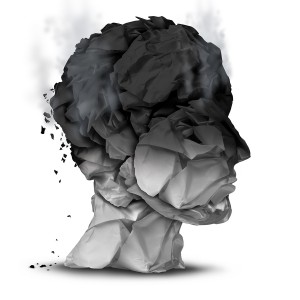I had a client this week who kept telling me how overwhelmed he was and how regardless of what he didn’t he couldn’t relax, struggled to enjoy his usual activities and was behaving in ways in his relationship that he really wasn’t proud of. When we tried to discuss his options, he kept freezing and feeling like there was no movement that he could make that he felt would make anything better.
When we got to really exploring what was going on within him, the reason for his overwhelm became abundantly clear. I mentioned to him that it seemed like he was completely burnt out and needed to prioritize taking care of himself. He burst into tears, both saddened by the reality and relieved that  someone else validated his pain.
someone else validated his pain.
Burnout is running rampant right now in our societies. I don’t think there is a week that goes by where there isn’t at least 20% of my clients who are coming in struggling with it but unaware of what the next steps need to be to get well. Often, unfortunately, people feel the solution to their overwhelm, decrease in productivity, overall unhappiness and apathy, is to just work and push harder. In reality one of the most critical things we can do is take ourselves incredibly seriously and step away, if not permanently (after all, being unemployed raises its own set of issues), then for long enough to actually be able to see where you need to make some changes to improve the quality of your life.
Picture yourself like a tank. When the tank is full, you feel great, have plenty to give and often are quite engaged with your life and the people in it. If your tank is empty, the opposite is true and regardless of how hard you try, or how much you push, you aren’t able to go anywhere. While it would be lovely to think that we can operate with a full tank at all times, this is extremely unlikely. What I encourage my clients to strive for in day to day life is a tank that is running at ½ to ¾ full. There will be times when that dips, and times when that is higher. If our tank starts to dip below ½ it will start affecting parts of our life pretty significantly. If it’s running on fumes, it impacts every part of our life drastically.
The challenge is that, unlike gas tanks, our tank takes a lot of time to fill and requires consistent and persistent effort. If you are actually burnt out, going away for a week won’t fill your tank from empty to half, yet alone full. Recovering from burn out, depending on how seriously we take it, can take anywhere from months to years because it affects all sides of us – mental, emotional and physical.
So what affect does this have on you and on your relationships?
For starters, when we are operating from a place of burnout, out relationship with self suffers. We stop engaging in the activities that make us feel good (exercise, friendships, hobbies etc) and instead spend our time typically numbing and checking out. The longer do this, the more the tank empties and the more we have to invest to feel like ourselves again.
Secondly, it makes it very difficult to maintain authentic connection in our relationships. We live on survival mode in many ways and our life is filled more with dread and exhaustion than openness and joy. Overtime, our relationship starts to be overcome with either unintentional disconnect or conflict, both of which only leave somebody feeling more drained and more burnt out.
As easy as it is to just keep pushing through and dismissing all the signs, I would encourage you to take time to check in and see just how full your tank is. It won’t fill itself up and continuing to neglect how you are doing will prevent you from living a healthy, productive and happy life. So take a moment and see how you are doing, and if necessary, look into how you need to consistently restructure your days in order to save your relationship with self and others. It will feel scary and even overwhelming to make the change at first, but in the end there is no better investment than in yourself.


